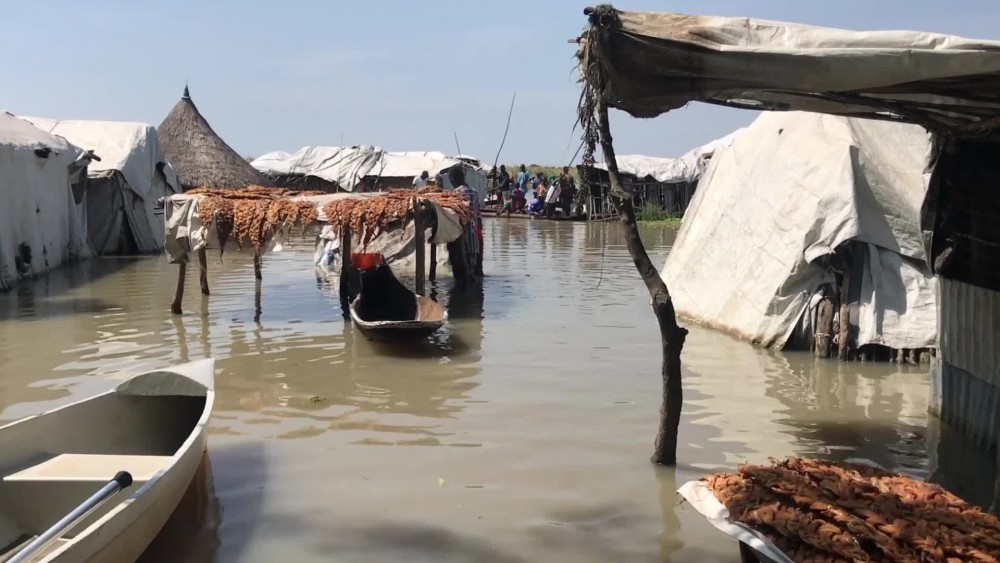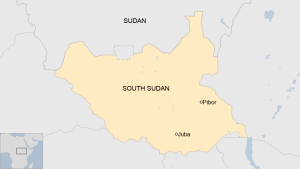A million people hit by flooding in South Sudan
2 min read

Recent floods in South Sudan have affected more than one million individuals, according to the UN’s humanitarian organization, Ocha. This natural disaster has devastated vast areas of the country, displacing many residents and complicating aid efforts.
Over a quarter of those impacted—particularly in the northern regions—have been forced to leave their homes due to rising waters. As people seek refuge on higher ground, they face severe challenges in accessing food and basic necessities. Joseph Nyao, director of Relief and Rehabilitation in Pibor, highlighted the dire situation, stating, “Those who have fled to higher ground don’t even have food; they left everything behind.”
The ongoing flooding is considered one of the worst seasons South Sudan has experienced in decades, exacerbating an already critical humanitarian crisis. In Pibor alone, approximately 112,000 people have lost their homes, significantly straining local resources.
The government is actively urging residents in flood-prone areas to relocate to designated safe zones identified by local authorities. Nyao noted, “The level of water is still increasing, and the displacement is continuing,” emphasizing the urgency of the situation.
In May, the South Sudanese government alerted the international community about the risk of exceptional floods expected later in the year. Since the onset of the rainy season, 15 major supply routes have become impassable, hampering the delivery of essential humanitarian aid to around 500,000 people across the nation.
 This flooding crisis unfolds against the backdrop of ongoing challenges faced by South Sudan, which has been grappling with the fallout from the 18-month civil war in neighboring Sudan. The conflict has resulted in over half a million Sudanese refugees and returnees seeking safety in South Sudan since April of last year.
This flooding crisis unfolds against the backdrop of ongoing challenges faced by South Sudan, which has been grappling with the fallout from the 18-month civil war in neighboring Sudan. The conflict has resulted in over half a million Sudanese refugees and returnees seeking safety in South Sudan since April of last year.
As the humanitarian situation in South Sudan deteriorates, Ocha warns that the country’s capacity to respond to these crises is becoming increasingly strained. The combined effects of flooding and the influx of refugees are stretching already limited resources, making it difficult for aid organizations to provide essential support.
With the rainy season expected to continue, the humanitarian outlook remains bleak. Many families are left without adequate shelter or supplies, raising concerns about the long-term implications of this disaster. As South Sudan navigates this crisis, the need for international assistance and intervention has never been more pressing.